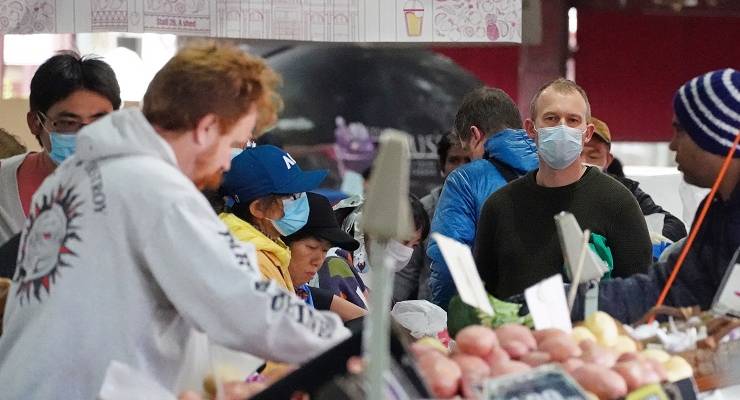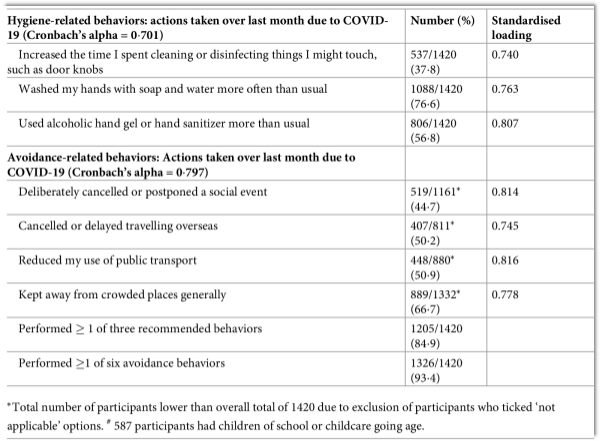
In Victoria, the military has been called in. Police are back to issuing on-the-spot fines. And coronavirus cases just keep climbing, with another 33 cases detected overnight.
Just when Australia was getting ready to go back to life as it was, two clusters of COVID-19 set the country back by months.
Is this our new normal?
Was elimination ever possible?
Elimination is still on the cards, Professor of Biostatistics at the University of South Australia Adrian Esterman told Crikey.
“We’ve already done it. In all other states, we’re seeing no new cases … if Victoria and NSW get their act together, elimination is entirely possible,” he said.
Whether cases increase or decrease in the coming days is difficult to predict, and depends on the government’s next steps.
“If Victoria can get it under control, and there is a chance they can do that, there’s a chance the country can suppress the virus,” he said.
Maintaining elimination would require strict quarantine for returned travellers — though Esterman believes 14 days isolation may not be enough.
One study from Hong Kong found that, in one-third of patients, the virus could be detected 20 days or more after the onset of symptoms.
“There’s still going to be a few people infected, so we need greater surveillance and further testing,” he said.
Will this last forever?
Associate professor in global health security at the University of Sydney Adam Kamradt-Scott told Crikey continuous clusters will be a feature of post-pandemic life.
“It is highly likely we’ll continue to see small outbreaks or clusters emerge until a vaccine does become available,” he said.
While health professionals are trained in infectious disease control, Kamradt-Scott said members of the public weren’t used to being so vigilant.
“It’s a challenge … people want to resume their lives, but we’re in a new reality.”
While Kamradt-Scott believes elimination still might be possible in Australia, it would require returning to even stricter lockdown measures. He’s not sure the public would agree to even stricter rules, or that the economy would cope.
“The government has been saying elimination would be a beneficial byproduct … at the end of the day, there’s a small risk we still wouldn’t end up with complete elimination even after lockdown measures.”
Will people get sick of the rules?
As time goes on and freedoms are restricted with each new cluster, are Australians likely to get bored of the rules and ignore them?
Senior Lecturer at the School of Public Health and Community Medicine at the University of NSW Dr Holly Seale told Crikey it’s less about people getting sick of the rules, and more about people’s perception of risk.
“People have just shifted their perceptions and practices in a way that they think is in line with the government advice and other sources,” she said.
Her research shows Australians are pretty good at following the rules — more than 90% of respondents said they’d actively changed their behaviour to help stop the spread of the virus to others.
84.9% of respondents performed more than one of three recommended behaviours, the most common being increasing handwashing and avoiding crowds.

In the face of the new coronavirus clusters, “a reevaluation is needed”, Seale said.
“What we need to do is get strong messages out there that are tailored to a new setting.”
Importantly, messaging shouldn’t just be a directive, but should get the public to understand the rules, and stress activities can be enjoyed in the right way.
“The key thing is supporting people’s understanding about the rationale around why we are trying to promote certain behaviours.”








No no! There are only 141 active cases in Victoria today!
You’ve mistaken Victoria’s cumulative case count since February 2020 — which totals 1917 (as at 25 June) — for the count of COVID-19 cases not yet fully recovered.
There is certainly a current community transmission problem, but it’s a fraction of the size you’ve suggested.
Perhaps you could correct the figures before any of your readers start panicking?
“Elimination is still on the cards…” says our expert here… His thought echo those of many competing on Crikey.
And indeed it is – provided we (1) scrupulously follow the distancing and operational limitations that have put 50% of the workforce on the government payroll for however long is necessary, and (2) close the borders totally, or at least extend the quarantine period to whatever length the person quoted here deems necessary (6 weeks? Our good prof doesn’t say). Of course, no one will come here – there will be no tourism, no migration, no foreign students, no business travel and no domestic industries sustaining any of them.
Such a scenario would clearly work though, and be incredible popular with both the anti foreigner Hansonites and grumpy Fox News types, as well as most of the progressive left who (up til now) have been applauding the hard lockdown measures of Daniel Andrews and Jacinta Ardern. Those who for years now have been voting Greens and advocating less population growth and less development will finally be in paradise, as there will none – anywhere.
By the time the magical vaccine eventually appears (2 and half years is the latest prognosis, but the time frame keeps being extended) Australia will be virus-free, probably the only place in the world that is. (Though NZ, Iceland and other island nations could be in our bubble, provided they do the same). Its government revenues will be in tatters, while expenditure will still be skyrocketing. Meanwhile the rest of the world will have made its peace with the virus – and will have developed considerable tolerance of both living with risk, and the disease itself. It will be powering ahead, well on the way to a sustained world trade-led recovery.
But in “little Australia” (and it will be very, very small), it’s leaders too frightened to open up, its citizens still cowering in fear of even a single case, we’ll be having the worst of both worlds – zero tolerance, and incredible vulnerability. And minus any of the economic drivers that up until now sustained us and paid for our first class health care system, what will our lives be like?
Reduced to subsistence farming? Clubbing each other over the head while fighting for fossil fuel? Sounds about right… but we will have “eliminated the virus.”